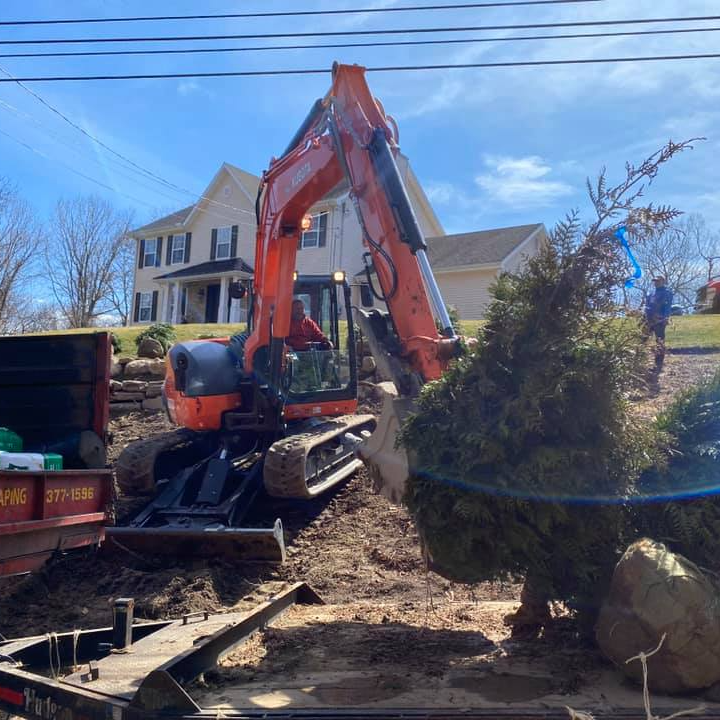Affordable Lancaster Excavation - Top Quality Excavation at Competitive Costs
Affordable Lancaster Excavation - Top Quality Excavation at Competitive Costs
Blog Article
Comprehensive Excavation Approaches: Grasping the Principles for Success
The mindful preparation, accurate execution, and precise attention to detail required in excavation jobs demand an extensive method that includes different essential elements. The true proficiency exists not merely in comprehending these basics but in perfectly incorporating them to browse the intricacies of excavation tasks with finesse.
Understanding Excavation Job Planning

The initial phase of any type of excavation task is the planning stage, where important decisions are made that can considerably influence the outcome of the job. Understanding the project budget plan, timeline, and scope constraints is important for developing a comprehensive excavation plan that guarantees the job's success.
One trick aspect of excavation project planning is the development of a detailed timeline that describes the series of milestones, tasks, and deadlines. This timeline serves as a roadmap for the task group, enabling them to track development and make required adjustments to make sure the job stays on schedule. Additionally, a well-defined budget plan that makes up all expenditures, consisting of devices leasing, labor expenses, and materials, is vital for avoiding expense overruns and hold-ups. By meticulously considering all these elements during the planning phase, excavation jobs can be performed efficiently and efficiently, causing successful end results.
Soil Analysis and Site Assessment
Carrying out comprehensive dirt evaluation and website analysis is a critical action in the preparation stage of any excavation project. Soil analysis includes establishing the structure, framework, and residential properties of the dirt at the excavation site. This information is crucial for comprehending the dirt's bearing capacity, moisture material, and possibility for disintegration, which are key elements in figuring out the excavation methods and tools required for the task.
Website analysis goes beyond soil analysis and includes a wider evaluation of the total website problems. This evaluation includes determining any kind of potential hazards, such as underground utilities, ecological worries, or unstable surface, that might affect the excavation procedure. By extensively examining the site, project managers can create reliable excavation techniques that prioritize safety and security, performance, and ecological defense.
Utilizing sophisticated modern technologies like ground-penetrating radar, soil tasting, and drone surveys can boost the precision and effectiveness of dirt evaluation and site assessment. Spending time and resources in these preliminary actions can inevitably conserve time and protect against pricey hold-ups or problems during the excavation process.
Equipment Selection and Application
Reliable excavation jobs depend greatly on critical tools choice and usage to ensure optimal efficiency and efficiency. Selecting the appropriate devices for the task is important in making the most of efficiency and decreasing downtime. Aspects such as the kind of dirt, depth of excavation, and task range play a significant role in identifying one of the most appropriate devices special info for the task handy.

In addition to choosing the suitable equipment, appropriate usage is crucial to task success. Operators has to be trained to take care of the equipment securely and effectively - lancaster excavation. Normal upkeep checks and timely repairs help prevent breakdowns and ensure constant efficiency throughout the job
Security Steps and Laws Compliance
In the realm of excavation projects, focusing on precaution and conformity with regulations is paramount to making certain a legally audio and safe operational environment. Precaution incorporate a variety of techniques, including performing detailed site assessments, implementing correct signs and obstacles, and supplying appropriate safety training for all employees involved in the excavation process. Adherence to laws, such as OSHA demands in the United States, makes certain that the excavation job satisfies the needed criteria to secure workers, spectators, and the surrounding setting.

Surveillance Development and Adjusting Methods
Just how can predict supervisors successfully track the innovation of excavation why not look here jobs and adapt their strategies accordingly to optimize end results? Monitoring progress is vital for guaranteeing that excavation jobs remain on track and satisfy deadlines. Task managers can make use of various devices and methods to track progress, such as day-to-day progress records, normal site inspections, and progressed tracking technologies like drones and GPS tracking systems. By continuously keeping track of the task's development, supervisors can recognize any type of potential hold-ups or concerns early and take aggressive procedures to address them.

Final Thought
Finally, understanding the basics of extensive excavation strategies is vital for the success of any project. By comprehending task planning, examining dirt and site problems, choosing appropriate tools, adhering to safety and security regulations, and keeping an eye description on development, job managers can make certain a efficient and smooth excavation procedure. Executing these approaches will certainly cause successful results and minimize prospective threats or setbacks throughout the excavation job.
The initial phase of any kind of excavation task is the preparation phase, where important decisions are made that can significantly affect the result of the task. Understanding the job budget, extent, and timeline restraints is essential for developing a comprehensive excavation plan that guarantees the task's success.
How can project managers properly track the improvement of excavation projects and adapt their methods as necessary to maximize outcomes? By very closely checking development and being eager to adjust strategies, project supervisors can enhance the overall success of excavation jobs.
By comprehending job preparation, assessing dirt and website problems, choosing ideal tools, conforming with safety and security laws, and keeping track of progress, project supervisors can guarantee a effective and smooth excavation procedure.
Report this page